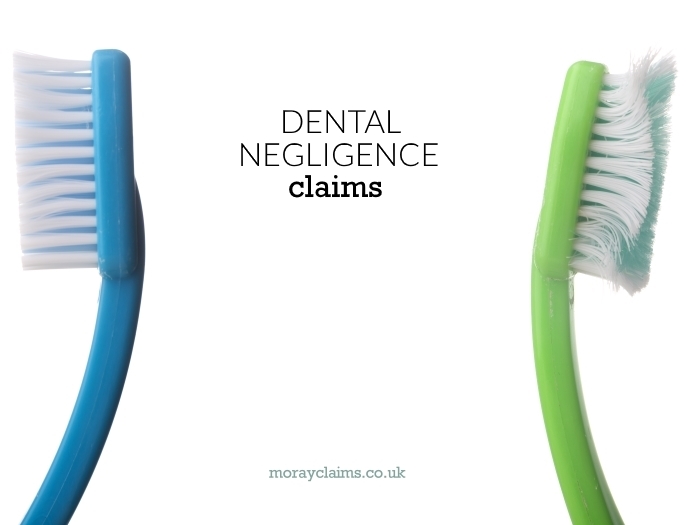
Rock climber, Alex Honnold, completed the first free-solo ascent of El Capitan, in Yosemite National Park, California in June 2017.
In other words, he climbed it by himself – all 2,900 feet of the route known as “Freerider” – without any ropes, taking just under four hours.
In a TED Talk about his incredible accomplishment, he explains the sense of anti-climax he had after a previous free-solo first – the ascent of Half Dome (also Yosemite) – in 2012.
That peak can also be reached by walkers, via a path up another side of the mountain from the rock face.
As he struggled at the crux of the climb, just below the summit, he could hear people chatting and laughing above him, unaware of his presence.
He had climbed Half Dome before, with ropes and full climbing gear. On those occasions, because his clothing and equipment marked him out, the regular hikers had greeted him at the mountaintop with gasps of adulation and crowded round him for photos.
Not so, on this occasion.

When Alex popped over rim of the summit, shirtless, panting and “amped”, no one batted an eyelid. To the untrained eye, Alex looked like a lost hiker who had perhaps strayed too close to the edge.
Only another climber might have recognised the amazing feat that had just been completed.
Extraordinary cases can be difficult to recognise in the climbing world, it seems. It’s similar in the field of dental negligence, where the extraordinary cases in which a possible compensation claim can succeed are often not easy – or even possible – for a lay person to identify.
In this article, we will consider three aspects of dental negligence claims.
First of all, where do dental negligence claims fit in to the general scheme of personal injury claims? Secondly, what that means for the way in which potential dental negligence claims have to be investigated and pursued. And, finally, we will consider a variety of examples of situations in which dental negligence claims have succeeded in the past.
Firstly, what are dental negligence claims?
They are compensation claims for pain and loss suffered as the result of treatment you have received from a dentist.
Dental negligence claims are a type of medical negligence.
Why is that (secondly) important when it comes to investigating potential claims of this type?
These claims are generally more difficult than the average negligence claim. For links to several articles explain these difficulties in greater detail, see the main category page on our blog covering medical / clinical negligence claims.
Essentially, in most cases, it will be necessary to get a report from a dental expert – based on your statement and on your dental records and maybe also your medical records) – to determine whether the conduct of the dentist in question fell below the required legal standard.
Of course, the need for such a report at an early stage in a potential claim has cost implications. A report from a dental expert to address the question whether there has been medical/professional negligence in the circumstances will typically cost at least £1,000.
Just because dental treatment does not produce the result you wanted, there is not necessarily a legal claim available to you.
Alex Honnold was indistinguishable from people who had walked up El Capitan – as opposed to rock climbing up it – without the expert eye of another climber to tell the difference. In the same way, the prospects of success of a dental negligence claim cannot usually be assessed by you or your solicitor and it needs the expert analysis of another dentist to determine whether your claim is likely to succeed or fail.
Having looked at some of the main problems that go along with dental negligence claims, it’s helpful to move on to look at some of the categories of treatment and loss which can (though not always) give rise to claim for dental negligence compensation.
When (thirdly) do dental negligence claims arise?
In very broad terms, it’s worth considering the sorts of circumstances which, from experience, may give rise to compensations claims for personal injury in the context of dental treatment.
This review is not definitive. Just because a claim is more or less likely than average, you always need to get legal and medico-legal advice on your particular circumstances. Each case is unique.
In other words, just because we say below that a claim might be unlikely in certain circumstances, you should still get legal advice about it. Your case may be an exception.
You also need to bear in mind that, in many cases, dental negligence claims are of modest value.
What types of dental treatment problems result in a person seeking legal advice about a possible claim?
Where a dental instrument breaks during treatment, in itself, this will not usually be negligent. However, where there has been a failure adequately to explain the risks of a particular procedure or treatment, that may give rise to a claim.
Nerve damage resulting from a dental injection, again, will not usually be regarded as negligent because it will be seen as a known risk of injections.
If you end up with damage to a nerve following a dental procedure, this will not often give rise to a claim unless you were not properly advised/warned of the risk ahead of time.
Where you suffer a fracture of a facial bone as the result of an extraction, that’s also not usually a breach of duty. It depends on the degree of force the dentist has used so, as mentioned above, it will always depend on the circumstances.
Sinus perforations following an upper molar or wisdom tooth extraction are not usually due to negligence of the dentist. If you were not informed of that risk, there may be a claim but you would need to be able to show that, if you had been properly notified of the risks, you would probably have decided against undergoing the procedure. It may not be possible to show that easily.
Infections following an extraction are not normally due to negligence. They are usually regarded as an unavoidable risk of the extraction. A delay in treating an infection may be negligent – and can lead to quite serious complications.
If you have undergone restorative dentistry, you may be dissatisfied with the resultant cosmetic appearance. In itself, this will not mean you automatically have a claim.
You might think that wrongful removal of teeth will form a strong basis of claim. Extracting the wrong tooth will probably be a breach of the dentist’s duty of care. However, there can be difficulties for the claimant if, say, the wrongly extracted teeth were in poor condition and would have had to be taken out in the short-term anyway. This is what solicitors refer to as a “causation” problem: proving that the negligence has caused a loss (or much of a loss).
Where there is a claim for incorrect removal of teeth, the claim can include the costs of remedial dentistry, whether that is the fitting of a bridge or an implant or some other treatment.
Injury as the result of a dental implant can occur but the range of circumstances is very wide indeed and it is impossible to give guidance here. It will depend on the exact circumstances and you will need to get legal advice.
If your dentist fails to provide adequate fillings or crowns, that will often be a breach of the dentist’s duty. You’ll have a claim for the pain and suffering you have had to endure – e.g. due to toothache or increased sensitivity – as well as the costs of repairs to your teeth. Unfortunately, the level of any claim for any pain and suffering here can be quite low.
Failing to diagnose or treat tooth decay can frequently give rise to a valid claim but these are often of low value. In the case of periodontal disease (gum disease), the consequences can be more significant for the patient/claimant. For example, several teeth may be affected and have to be extracted. Much may depend on whether – or at what stage – you were aware that you had gum disease.
Summary
This has been an overview of the sorts of scenarios which give rise to potential claims for dental negligence.
We’ve seen that dental negligence claims are a type of medical negligence claim and that adds to the complexities of making such a claim successfully.
In all of the categories of fact situations we have mentioned, there will be some cases which succeed and some which do not. Just because we say that claims rarely succeed in one area, you need to get advice because your case may be an exception.
How we can help
In this article, we have discussed aspects of dental negligence claims.
If you have any questions arising from the content of this article, please get in touch. We’re keen to make the content of this website as comprehensive and informative as possible. Your questions help us to identify ways in which we can review and improve the content of this website.
You can contact us by telephone on 01343 544077 or send us a Free Online Enquiry. We are specialist, accredited solicitors at Grigor & Young LLP, based in G&Y’s Elgin (Moray, Scotland) office.
Make A Free Online Enquiry Now
Image credits: El Capitan photo by jay carpio on Unsplash and Half Dome photo by Josh Carter on Unsplash